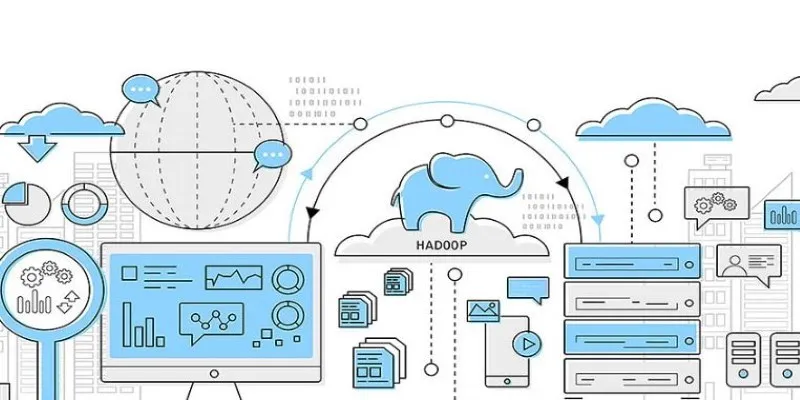As customer expectations rise, businesses are increasingly turning to AI to deliver exceptional customer service. AI enables faster, smarter, and more personalized interactions, helping brands enhance their customer experiences. By analyzing data to identify trends and patterns, AI helps businesses understand customer needs better. Additionally, AI resolves common issues such as limited customer control, slow response times, and lack of support outside business hours.
AI is now a crucial tool for supporting and enhancing the work of human agents. A recent survey shows that half of customer service professionals believe AI will continue to work alongside human agents, assisting rather than replacing them. If you’re curious about how AI can transform your business’s customer service, keep reading!

13 Ways AI in Customer Services Can Transform Your Business
Artificial Intelligence is revolutionizing how businesses support their customers. Here’s how AI can transform your customer service:
- Enable Exceptional Customer Service Experiences: AI allows businesses to handle a higher volume of customer inquiries without compromising quality. It provides agents with valuable insights, such as customer mood and issue type. For instance, Liberty London uses AI to gauge customer needs. AI chatbots manage high traffic across various platforms like email, chat, and social media, especially during peak times.
- Provide Fast, 24/7 Customer Support: AI ensures support availability round-the-clock. AI chatbots swiftly answer common questions, reducing wait times. They also assist human agents with prewritten responses and reply suggestions, expediting response times.
- Facilitate Faster Team Onboarding: AI simplifies training for new agents by offering live tips and suggesting improved responses. New agents learn from past interactions and adjust their tone for better communication, streamlining the training process.
- Enhance Efficiency and Productivity: AI boosts team productivity by automating routine tasks and directing queries to the right agents. Features like skill-based routing and smart triage enable quicker issue resolution, allowing agents to focus on complex problems.
- Deliver Hyper-Personalized Interactions: AI provides agents with insights into each customer’s history and preferences. Brands like Grove Collaborative leverage AI to offer personalized experiences. AI supports teams with the necessary information to deliver faster, high-quality assistance.
- Anticipate Customer Needs and Potential Issues: AI analyzes data, such as order history and past behavior, to anticipate customer needs and potential problems. For example, Motel Rocks uses AI to detect customer moods and needs, allowing agents to prioritize and prepare accordingly.
- Provide AI-Powered Quality Assurance: AI evaluates agent performance and identifies areas for improvement. By monitoring customer mood and agent responses, AI ensures consistent and enhanced service quality over time.
- Analyze Customer Data to Predict and Prevent Issues: AI examines messages to identify dissatisfied customers or potential issues. It alerts agents to intervene before problems escalate, using sentiment analysis and keyword tracking to maintain customer satisfaction.
- Offer Personalized Promotions: AI recommends deals and discounts based on customer behavior and purchase history. It sends special offers to customers who abandon their carts, increasing sales opportunities and enhancing the customer experience.
- Optimize Workforce Management: AI improves staffing efficiency by predicting peak times and allocating the right number of agents. Real-time performance tracking and automated scheduling streamline workforce management.
- Reduce Operational Costs: AI minimizes business expenses by handling simple tasks, reducing the need for additional staff. It optimizes training and tool utilization, enabling teams to meet demand efficiently without incurring extra costs.
- Create Consistent Brand Experiences: AI helps maintain brand consistency across platforms by developing chatbot personas that reflect the brand’s style. Agents can adjust their responses to match the desired tone, enhancing the overall customer experience.
- Enhance Knowledge Management: AI keeps help content up-to-date and relevant, identifying articles that need updates and assisting in content creation. This facilitates quick customer access to accurate information, reducing the need for direct support.

Benefits of AI in Customer Services
AI offers numerous advantages for customer service. Here are the key benefits:
- Faster Service with Reduced Handling Time: AI decreases the time required to resolve customer issues. Chatbots provide instant answers to common queries using stored company data, resulting in faster responses and happier customers.
- Valuable Customer Insights: AI tools analyze large volumes of customer data, including browsing history, reviews, and social media comments. This helps businesses identify trends and address customer dissatisfaction proactively.
- Omnichannel Support: AI enables seamless support across multiple platforms, maintaining conversation continuity regardless of where customers reach out.
- Personalized Service: AI customizes responses using customer data and even sends personalized messages for birthdays or special occasions, fostering strong customer relationships.
- Facilitated Business Growth: AI-powered chatbots manage increased customer interactions without the need for additional staff, allowing human agents to handle complex cases and provide 24/7 support.
- Automated Workflows: AI automates tasks like ticket sorting and call transcription, reducing team stress and enhancing productivity.
Conclusion
AI is revolutionizing customer service by making it faster, smarter, and more efficient. It enables businesses to handle more customer interactions effectively and provide personalized support without compromising quality. AI supports human agents, making their jobs easier and improving service. By answering simple questions and analyzing data to understand customer needs, AI is becoming an integral part of support teams.
 zfn9
zfn9






















